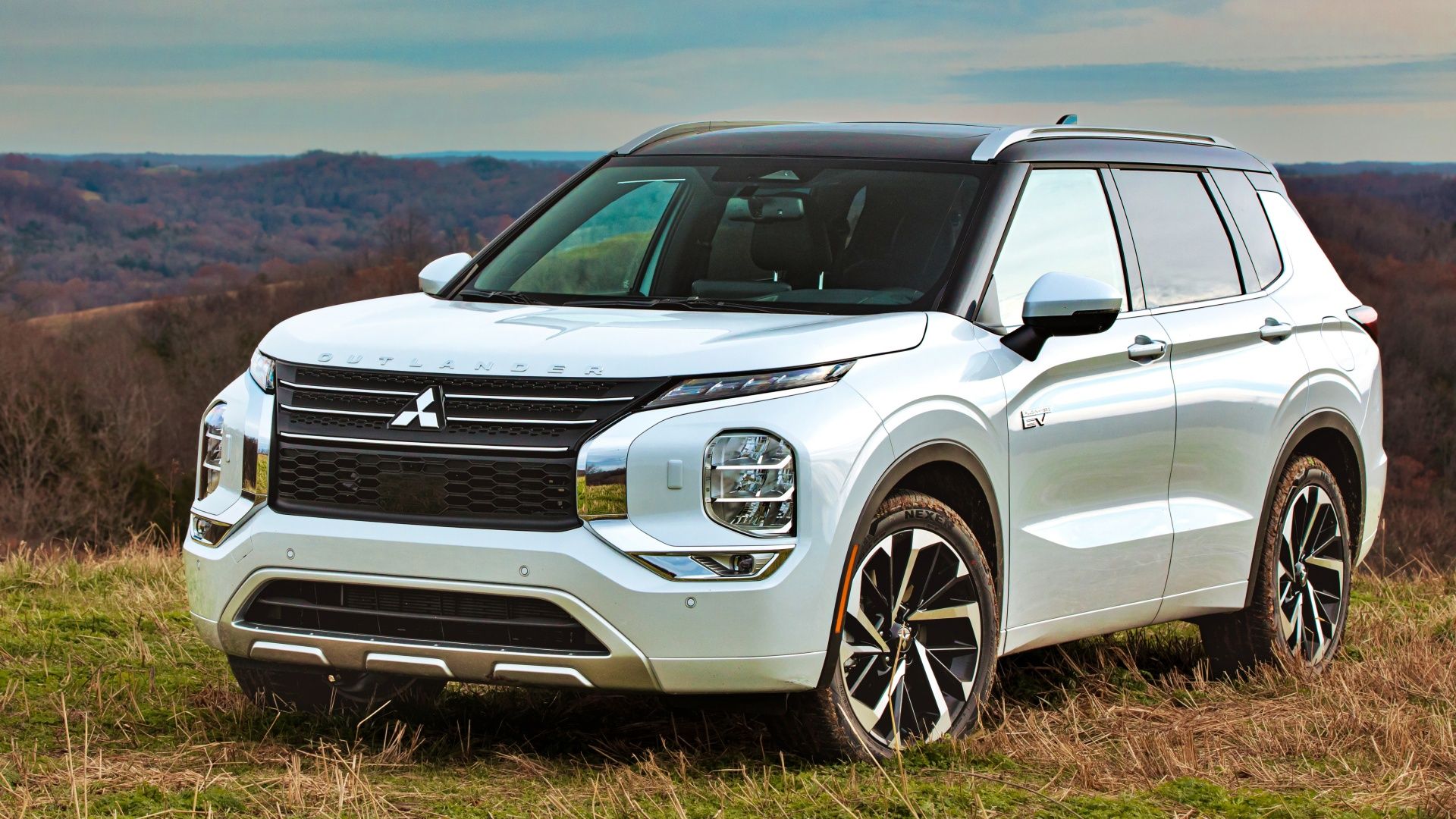Mitsubishi Pickup Trucks pickup.truckstrend.com
An Enduring Legacy of Rugged Reliability
Mitsubishi Pickup Trucks, particularly the globally renowned L200 (also known as the Triton in many markets), represent a significant chapter in the history of utility vehicles. For decades, these robust and versatile machines have carved out a reputation for unparalleled durability, off-road capability, and steadfast reliability, making them a preferred choice for diverse applications worldwide. From navigating the challenging terrains of remote worksites to serving as dependable family vehicles for adventurous spirits, Mitsubishi pickups have consistently delivered on their promise of performance and resilience. Their importance lies not just in their functional utility but also in their accessibility, often providing a compelling blend of features, capability, and value that resonates with a broad spectrum of buyers seeking a reliable workhorse or a capable adventure companion. This article delves deep into the world of Mitsubishi Pickup Trucks, exploring their evolution, key features, benefits, practical considerations, and what makes them a enduring force in the competitive pickup market.
Mitsubishi Pickup Trucks
A Legacy of Durability: The Evolution of Mitsubishi Pickups
Mitsubishi’s journey in the pickup truck segment began in the late 1940s with early utility vehicles, but it truly gained global momentum with the introduction of the Forte in 1978, later known as the L200 or Triton. This model marked a pivotal moment, establishing Mitsubishi as a serious contender in the light commercial vehicle market. Over successive generations, the L200/Triton has evolved, incorporating technological advancements while steadfastly maintaining its core DNA of ruggedness and reliability.
Each generation brought significant improvements: from more powerful engines and refined interiors to advanced four-wheel-drive systems and enhanced safety features. The L200/Triton became a global workhorse, particularly popular in Southeast Asia, Australia, Europe, and parts of Africa and South America. Its ability to withstand harsh conditions and perform reliably under stress cemented its reputation as a go-anywhere, do-anything vehicle. While other Mitsubishi pickup models existed historically (like the Mighty Max in North America), the L200/Triton stands as the quintessential representation of Mitsubishi’s pickup truck prowess in the modern era.
The Modern Mitsubishi Triton/L200: Design, Performance, and Features
The current iteration of the Mitsubishi Triton/L200 embodies a blend of rugged capability and modern sophistication, designed to meet the demands of both work and leisure.
Design Philosophy

The exterior design showcases Mitsubishi’s distinctive "Dynamic Shield" front fascia, giving it a bold and imposing presence. Its muscular lines and elevated stance hint at its underlying strength and off-road readiness. Despite its utilitarian purpose, the design incorporates contemporary elements that appeal to a wider audience, moving beyond purely functional aesthetics.
Engine & Drivetrain
At the heart of the modern Triton/L200 is typically a robust and efficient 2.4-liter MIVEC Turbo Diesel engine. This powerplant is engineered for strong torque delivery at low RPMs, crucial for towing, hauling, and off-road excursions, while also offering commendable fuel efficiency.
A cornerstone of Mitsubishi’s 4×4 expertise is its advanced four-wheel-drive systems:
- Super Select 4WD-II: This highly acclaimed system offers four driving modes: 2H (2WD High Range) for fuel-efficient highway driving, 4H (4WD High Range) for enhanced traction on slippery surfaces (can be used on paved roads), 4HLc (4WD High Range with locked center differential) for off-road traction, and 4LLc (4WD Low Range with locked center differential) for extreme off-road conditions and steep ascents/descents. It provides exceptional versatility, allowing drivers to switch between 2WD and 4WD on the fly at speeds up to 100 km/h.
- Easy Select 4WD: A more traditional part-time 4WD system, offering 2H, 4H, and 4L modes, best suited for dedicated off-road use where paved road 4WD is not required.
Performance
The Triton/L200 boasts impressive performance figures for a pickup. Its towing capacity typically ranges from 2,700 kg to 3,500 kg (depending on variant and market), making it suitable for trailers, caravans, and boats. Payload capacity often exceeds 1,000 kg, allowing it to carry significant loads in its bed. Its high ground clearance and optimized approach and departure angles further enhance its off-road prowess, allowing it to tackle challenging terrains with confidence.
Interior & Technology
While built for toughness, the modern Triton/L200 doesn’t skimp on comfort and technology. Interiors are designed to be practical yet comfortable, with durable materials and thoughtful ergonomics. Higher trims offer features like:
- Infotainment Systems: Touchscreen displays with smartphone integration (Apple CarPlay, Android Auto).
- Safety Features: Modern models come equipped with a comprehensive suite of safety technologies, including Forward Collision Mitigation, Lane Departure Warning, Blind Spot Warning, Rear Cross Traffic Alert, and a Multi-Around Monitor for 360-degree visibility. Some markets even offer adaptive cruise control and automatic high beam.
- Comfort Features: Dual-zone climate control, leather upholstery, power-adjustable seats, and multiple USB ports enhance the driving and passenger experience.
Key Benefits of Owning a Mitsubishi Pickup Truck
Mitsubishi pickups offer a compelling package of advantages that appeal to a wide range of users:
- Unmatched Reliability & Durability: This is arguably the strongest selling point. Mitsubishi trucks are engineered to last, often enduring years of heavy use and harsh conditions with minimal issues. Their robust chassis, proven powertrains, and high-quality components contribute to their legendary longevity.
- Exceptional Off-Road Prowess: Thanks to systems like Super Select 4WD-II, good ground clearance, and effective suspension articulation, the Triton/L200 is highly capable off-road. It can confidently navigate mud, sand, rocks, and steep inclines, making it ideal for adventurers and those who work in challenging environments.
- Versatility for Work and Play: Whether it’s hauling construction materials, towing a boat for a weekend getaway, or serving as a comfortable daily driver, the Mitsubishi pickup excels. Available in various body styles (Single Cab, Club Cab, Double Cab), it can be configured to suit specific needs.
- Value for Money: Mitsubishi pickups often offer a competitive purchase price compared to rivals, along with generally lower running costs due to their fuel-efficient diesel engines and renowned reliability, which translates to fewer unexpected repair bills.
- Comprehensive Safety Features: Modern Mitsubishi pickups are equipped with advanced active and passive safety systems, providing peace of mind for drivers and passengers. This commitment to safety ensures that functionality doesn’t come at the cost of protection.
Important Considerations and Practical Advice
Choosing and maintaining a Mitsubishi pickup involves several key considerations:
- Choosing the Right Trim and Body Style:
- Single Cab: Ideal for pure utility, maximum tray space, and often the most affordable.
- Club Cab (Extended Cab): Offers a bit more interior space behind the front seats for occasional passengers or secure storage, with a slightly shorter tray than the single cab.
- Double Cab (Crew Cab): The most popular choice, providing four full doors and ample seating for five, balancing passenger comfort with a decent-sized tray.
- Trims: Ranging from basic GLX (work-focused) to higher-spec GLS, Exceed, or GSR (more comfort, tech, and styling), align your choice with your budget and intended use.
- Maintenance Tips:
- Regular Servicing: Adhere strictly to the manufacturer’s recommended service schedule, especially for diesel engines which require specific oil and filter changes.
- Off-Road Care: After off-road excursions, thoroughly clean the undercarriage to remove mud, salt, or debris that could cause corrosion. Inspect suspension components, tires, and brakes for damage.
- Fluid Checks: Regularly check engine oil, coolant, brake fluid, and differential/transfer case fluids.
- Tire Pressure: Maintain correct tire pressures, adjusting for load or off-road conditions.
- Modifications & Accessories:
- Lift Kits: Can improve ground clearance and aesthetics but may affect handling, warranty, and legality. Choose reputable brands and professional installation.
- Bull Bars/Nudge Bars: Offer frontal protection but add weight. Ensure they are airbag-compatible.
- Canopies/Hard Lids: Secure and protect cargo in the tray.
- Towing Accessories: Ensure correct tow bar rating and consider brake controllers for heavy trailers.
- Fuel Economy: While generally good for a pickup, real-world fuel economy can vary significantly based on driving style, load, terrain, and accessories. Expect higher consumption when towing or off-roading.
- Resale Value: Mitsubishi pickups generally hold their value well, especially well-maintained 4×4 double cab variants, due to their reputation for reliability and utility.
Challenges and Solutions
While Mitsubishi pickups are highly capable, they do have a few areas that prospective owners might consider:
- Stiff Ride (Unladen): Like many leaf-sprung pickups, the Triton/L200 can have a firm ride when the tray is empty.
- Solution: Adding some weight to the tray or upgrading to aftermarket comfort-oriented suspension components can improve ride quality for daily driving.
- Perceived Interior Quality (Historically): Older generations focused more on ruggedness than luxury, leading to some perceptions of basic interiors.
- Solution: Newer models have significantly improved, offering more refined materials, better ergonomics, and advanced technology. For those seeking premium finishes, higher trim levels address this.
- Limited Engine Options: Compared to some rivals that offer multiple engine choices (petrol, larger diesels), the Triton/L200 often focuses on a single, highly optimized diesel engine.
- Solution: The 2.4L MIVEC diesel is a proven performer, offering an excellent balance of power, torque, and efficiency for most applications. Its reliability often outweighs the need for more options.
- Brand Perception/Market Share: In some markets, Mitsubishi may not have the same massive market share or marketing presence as some larger competitors.
- Solution: Focus on the product’s inherent strengths – its reliability, capability, and value. Loyal owners often praise the Triton’s no-nonsense approach and dependability over flashier rivals.
Estimated Price Table for Mitsubishi Triton/L200 (New Models)
Please note: Prices are estimated starting RRP (Recommended Retail Price) for new vehicles and can vary significantly based on region, specific market (e.g., Australia, UK, Southeast Asia), currency fluctuations, trim level, optional extras, dealer promotions, and government taxes/fees. The prices below are illustrative.
| Model / Configuration | Drivetrain | Engine | Transmission | Estimated Starting Price (AUD) | Key Features (Base) |
|---|


